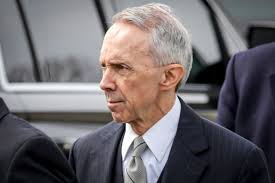Lyndon B. Johnson (1908 - 1973)
Lyndon B. Johnson (1908-1973)
Doris Kearns Goodwin’s Lyndon Johnson and The American
Dream is a monumental work that captures this American president at his best
and worst. From a childhood in Texas while at home, and at school Johnson was
deeply influenced by his mother Rebekah. The author went at length to portray
this aspect of his life by showing how he longed to please a mother who was rather
demanding. But Johnson was able to eventually shift his loyalties to Sam, his
father, who was a political figure in Texas.
At San Marcos College Johnson made his mark by manipulating
the system where he was a student. Soon, he was working closely with the
college’s president that orchestrated changes in student government. On
graduation he endeavored to follow in his father’s footsteps, and went to
Washington DC as an office manager to congressman Richard Kleberg. There, he
mastered the intricacies of congressional life by learning the ropes.
Having been able to attract the attention of Franklin Roosevelt,
he was appointed to the post of NYA programs, and returned to Texas where he
worked. There he was able to cultivate a political base. Eventually, Johnson ran
for congress in the 10th district. With that success he returned to
Washington DC as a congressman, and was able to further master the workings of
the congressional system. Having been in congress for a number of years he brought
results to his constituents with the implementation of electricity and water
systems.
But congress was only a stepping stone. Johnson was
successful in a run for the senate in his second attempt in Texas. In
Washington DC as a senator, he once again made his way through committees to
become minority leader. Later, he was the majority leader of the Democratic
party. Johnson was a master in this post with the amount of legislation that
was passed. His success didn’t end in the senate. But eventually he became Vice-President
to John F. Kennedy and was less effective. In this role he often thought he was
being sidelined in the Kennedy administration.
With the assassination of John F. Kennedy on November 22,
1963, Johnson was sworn in as President of the United States. He did a
remarkable job of calming the fears of a distraught nation during these
troubling times. Quickly, he moved to pass legislation that was pending in the
Kennedy administration. One of his remarkable achievements was the passage of
the Civil Rights Act of 1964. This was soon followed by the Voting Rights Act
of 1965 that enfranchised Black Americans. Months after Johnson won a landslide
election against Barry Goldwater, he ushered in legislation for his programs on
the Great Society. These addressed poverty, education, social security,
welfare, transportation etc.
Yet, these successes were not to last. Johnson became
bogged down with the Vietnam war. He was unable to function effectively with the
country’s foreign policy initiatives. Often, he was given conflicting advice
from his advisors on the war. He couldn’t face the fact that America was doing
badly in propping up South Vietnam against North Vietnam. Johnson ordered more
bombings which were not the solution. He was lying to the public concerning how
the war was going. War budgets were hidden from them. With the Tet offensive,
the coming of new elections, inflation, losses to the Great Society programs,
Johnson broadcast to the nation that he won’t seek election as President of the
United States. He retired to his ranch in Texas where he died on January 23,
1973 of a heart attack.




Comments
Post a Comment